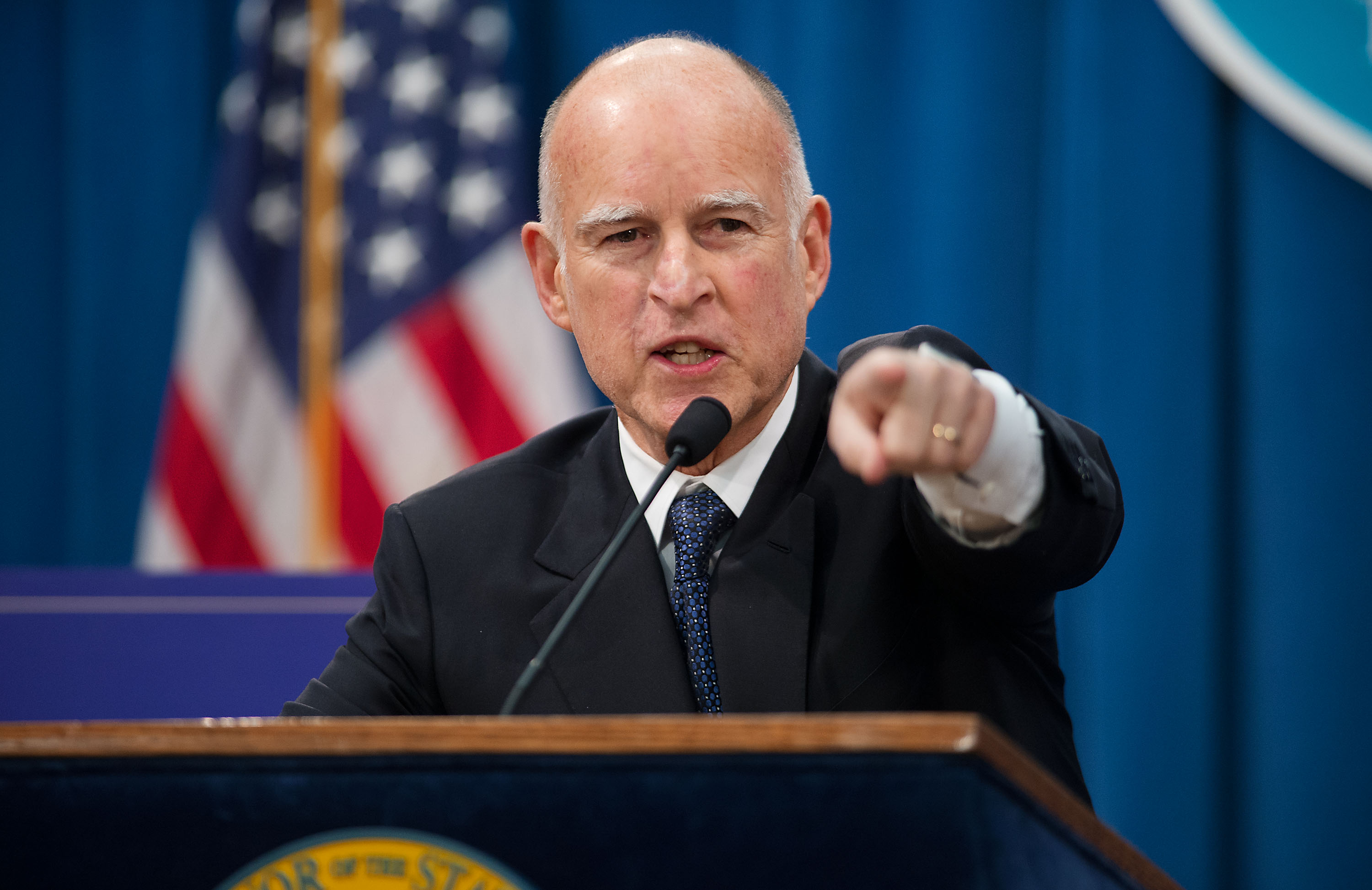Gov. Brown has just released his spending proposal for 2017-18, and taxpayers should not be blamed if they feel like they are walking down a dark alley in a high-crime neighborhood.
While the governor’s proposed budget has been described as austere, it still represents a spending boost of 5 percent, a rate of increase only slightly smaller than last year’s 6 percent.
Because the state is in the process of rewarding its employees with generous pay increases and covering an expanding requirement to fund their pensions — pensions that are currently subsidized by 6 percent of the general fund budget — more spending does not represent an increase in the quantity or quality of services for average Californians.
The Brown budget contains no major program increases except for transportation. But the kicker is that this would be contingent on higher taxes on gasoline and car registration.
While state workers will be kept snug and comfortable, if commuters want those pot holes repaired, they must pay extra.
However, the governor’s budget should not be regarded as anything more than a placeholder. The ability to fund it is threatened from all directions.
The new administration in Washington, as well as a majority of both houses of Congress, have made it clear that Obamacare is on the verge of elimination. There can be little doubt that federal funding for California’s massive expansion of Medicaid is in jeopardy.
Remembering Reagan
Because, to paraphrase Ronald Reagan, a government program is the nearest thing to eternal life we’ll ever see on this earth, no one will be surprised when Sacramento looks to average taxpayers to make up the nearly $16 billion difference.
Then there is uncertain tax revenue. The extension of the nation’s highest income tax rates renders California highly vulnerable to economic fluctuations.
Although growth had been tepid, we have experienced 90 months of economic expansion. Financial experts warn us to be prepared for the next downturn.
As if these threats were not enough, Mr. Brown will have to contend with elements in his own party who believe in the axiom of former Senate leader David Roberti:
“When you’ve got it, spend it,” to which they would add the corollary, “If you don’t have it, spend it anyway.”
Phil Ting, Chairman of the Assembly Budget Committee, already has made it clear that he does not want to budget assuming the worst, that the Legislature must continue “investing in California.”
This is a budgetary approach akin to Admiral David Farragut’s at the battle of Mobile Bay, “Damn the torpedoes, full speed ahead.”
While Farragut was successful, is it appropriate to put California taxpayers at dire risk through imprudent spending?
In May, the governor will issue a revised budget, no doubt with major changes, in advance of the June 15 deadline for final passage. If revenue is down, taxpayers may be treated to the spectacle of a cage match between those committed to spending, backed by their special interest allies, and those who advocate a slightly more cautious approach.
In Sacramento, fiscal sanity is relative.
Ironically, our eccentric governor who thinks nothing of lavishing nearly $100 billion on a bullet train, may be the dwindling middle class’s best hope to fend off major increases to their already staggering tax burden.
Mr. Coupal is president of the Howard Jarvis Taxpayers Association — California’s largest grass-roots taxpayer organization dedicated to the protection of Prop. 13 and the advancement of taxpayers’ rights.







